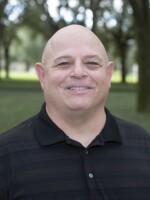University of South Florida researchers were major contributors in a recently published study that found hearing aids can slow cognitive decline in some older adults with hearing loss.
It's the latest research showing a possible connection between hearing loss and the onset of dementia in older adults.
In addition to designing, testing and implementing the hearing intervention used in the three-year study, the USF team also trained the audiologists who used it and monitored the participants' outcomes.
In the overall group of adults aged 70 to 84, hearing aids did not reduce cognitive decline.
However, the intervention slowed decline by 48% for participants one of two subsets: those with mild to moderate hearing loss, at an "increased risk for cognitive decline" and also taking part in an observational study of heart health.
The second subset was made up of healthy community volunteers with a "decreased risk for cognitive decline."
Researchers say that improvement from hearing aids was apparent only in the heart study because those participants had "nearly a three-fold faster rate of cognitive decline" over the three years than the healthy volunteers.
The intervention included the use of hearing aids, a hearing kit for self-management, and ongoing instruction and counseling with an audiologist.
“Hearing intervention consists of two components,” explains Dr. Victoria Sanchez, an audiologist with the USF Health Morsani College of Medicine in Tampa. “First are hearing aids and related hearing technologies, and second are the diagnostic and hearing care support services of an audiologist to guide the individual in using these hearing technologies to hear and communicate optimally.”
In addition to Sanchez, USF’s team included audiologist Dr. Michelle Arnold and Theresa H. Chisolm, vice provost for Strategic Planning, Performance and Accountability in the College of Behavioral and Community Sciences.
The Aging and Cognitive Health Evaluation in Elders (ACHIEVE) study was the largest randomized, controlled clinical trial testing whether hearing aids can reduce cognitive decline.
“Important risk factors for cognitive decline and dementia that could be potentially addressed to help reduce dementia include hearing loss, less education in early life, smoking, diabetes, high blood pressure, social isolation and physical inactivity,” Sanchez continues in comments published by USF. “Addressing hearing loss is one way we could reduce the increase rate of older adults living with dementia.”
The study was led by researchers at eight institutions from Nov 9, 2017, to Oct 25, 2019. Results were published in the Lancet on July 18 and reported at the Alzheimer’s Association International Conference in Amsterdam.
Sanchez believes the ACHIEVE research can influence policymakers.
“In many parts of the world we need improved affordable access and insurance coverage for hearing treatment/intervention,” she says.
Anyone with concerns about their hearing with possible risk factors for cognitive decline should talk with their physician and be seen by an audiologist, Sanchez advises.
9(MDAyNDY5ODMwMDEyMjg3NjMzMTE1ZjE2MA001))
Copyright 2023 Health News Florida




